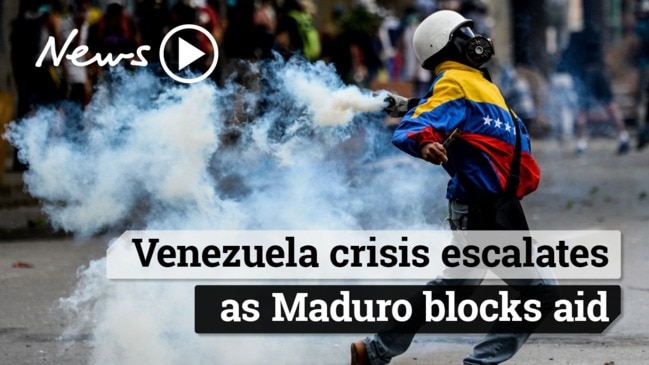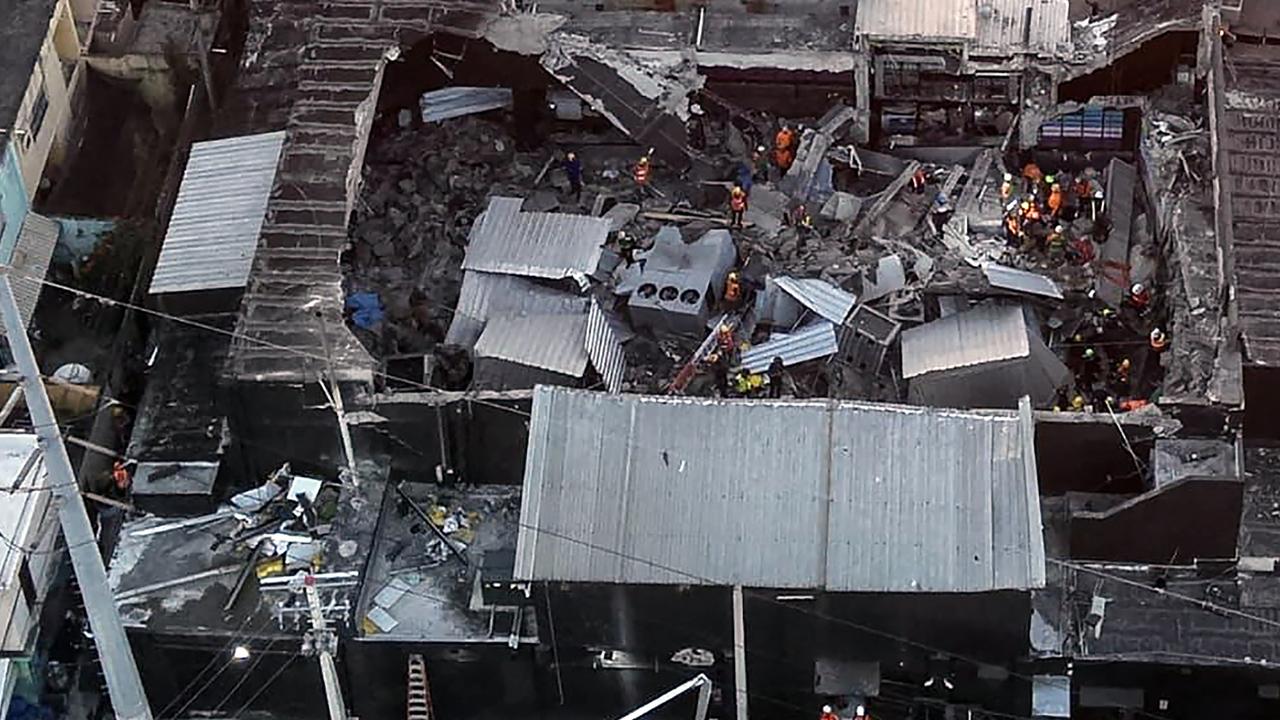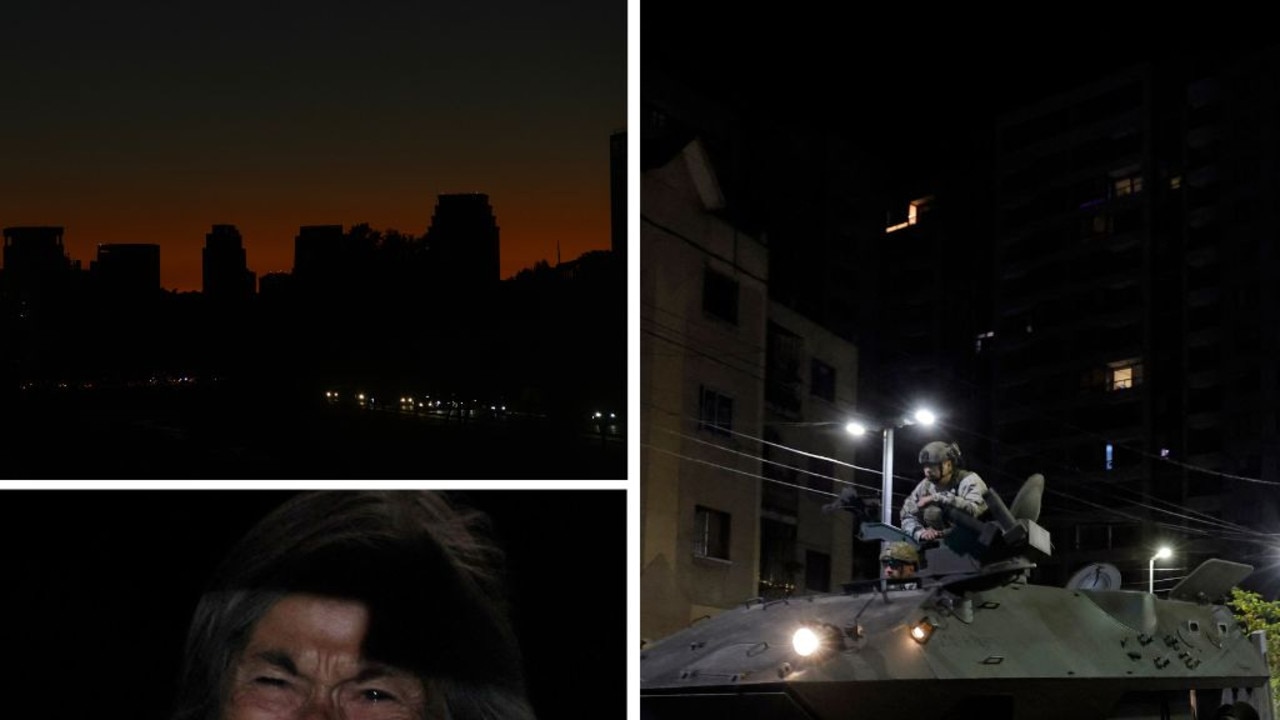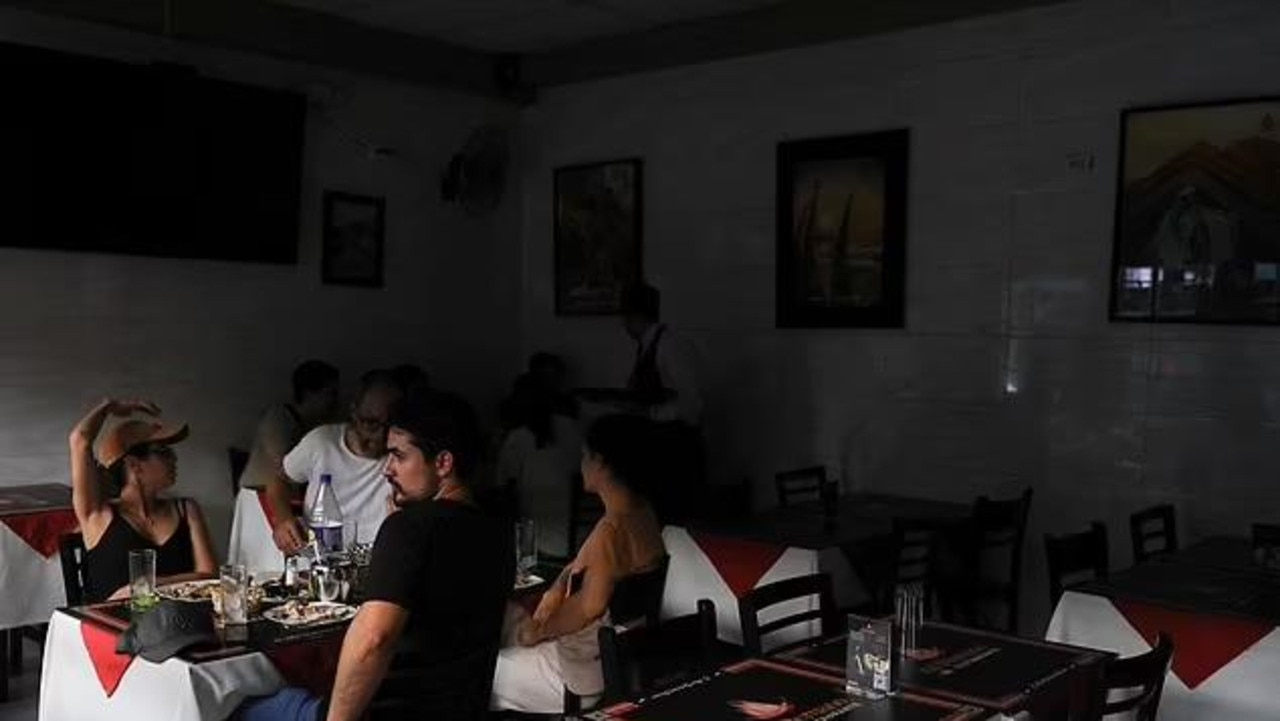Desperate scenes at Venezuela-Colombia border as mass protests planned
Gangs have descended to exploit the misery of an endless stream of desperate people crossing at one of the world’s most chaotic borders.
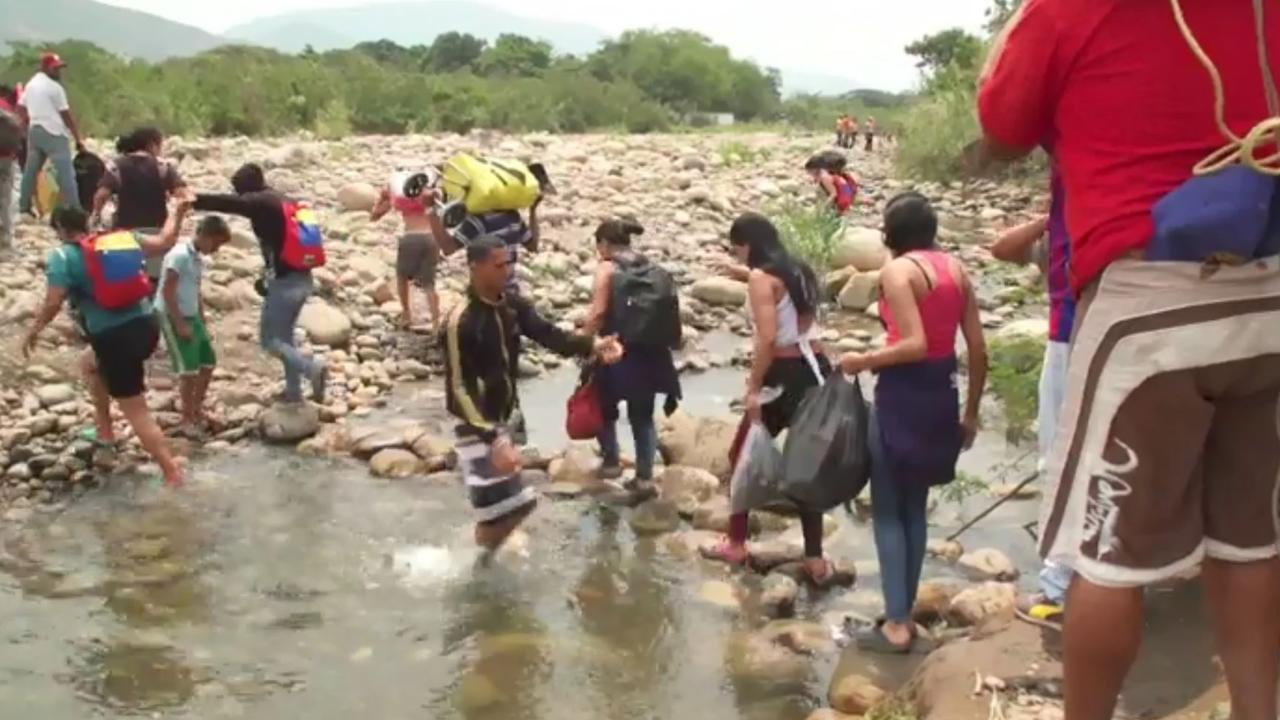
Venezuelans stretch as far as the eye can see, stumbling across a shallow river that separates them from Colombia, carrying everything they possibly can to keep their loved ones comfortable and fed.
But even when the poverty stricken masses succeed at getting through, they are being met with ruthless gangs who rip them off.
That is the dire situation unfolding on the ground at Cúcuta, a Colombian city on the Venezuelan border, which only one week ago was closed amid fierce clashes.
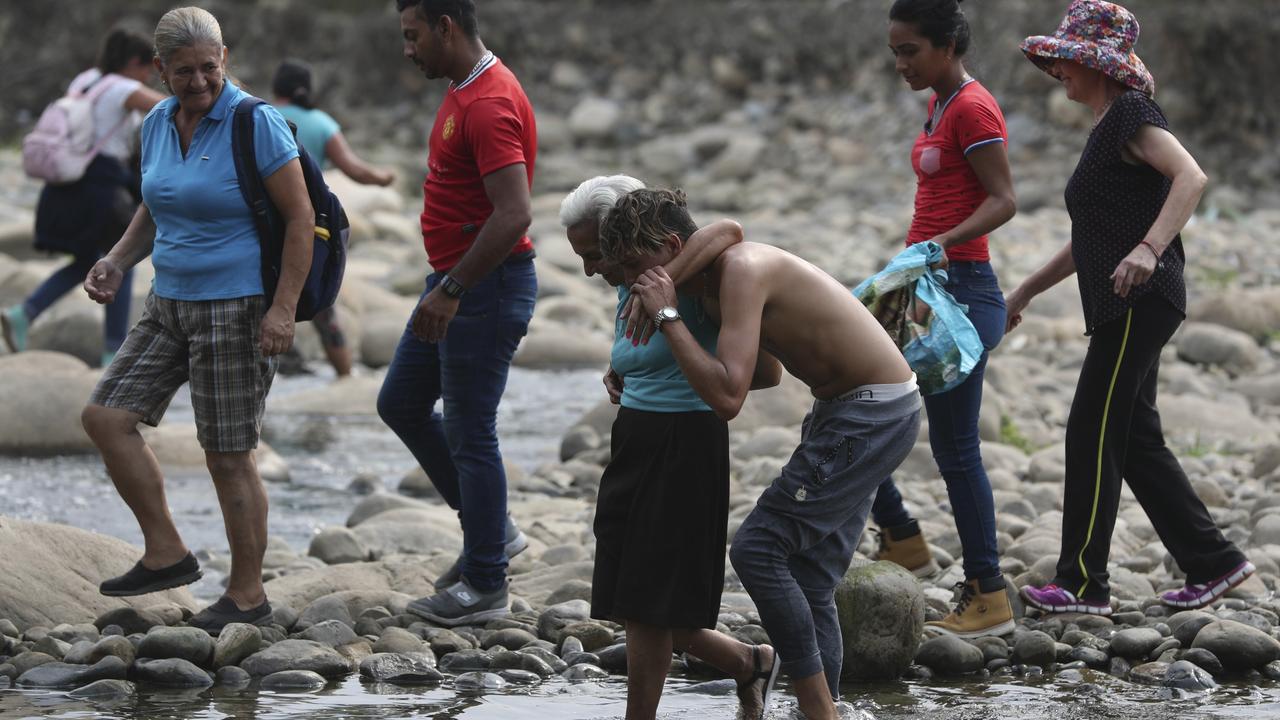
It became impenetrable for the desperate Venezuelans trying to escape their chaotic nation so they can bring food back to their loved ones.
But now they have found another way to get through.
CNN’s Nick Paton Walsh, who is reporting at the scene, said there are an “endless” number of people constantly spilling back and forth over the stony river.
However, those returning with goods are greeted by either Venezuelan soldiers or ruthless gangs who are cruelly taking money from them for crossing.
Walsh said they gangs are charging 50c per person, or $2 if you’re carrying goods, which is no small sum in a country where the inflation hit an eye-watering 80,000 per cent at the end of 2018.
“It’s not soldiers,” one Venezuelan told the network. “I don’t know who gets the money.”
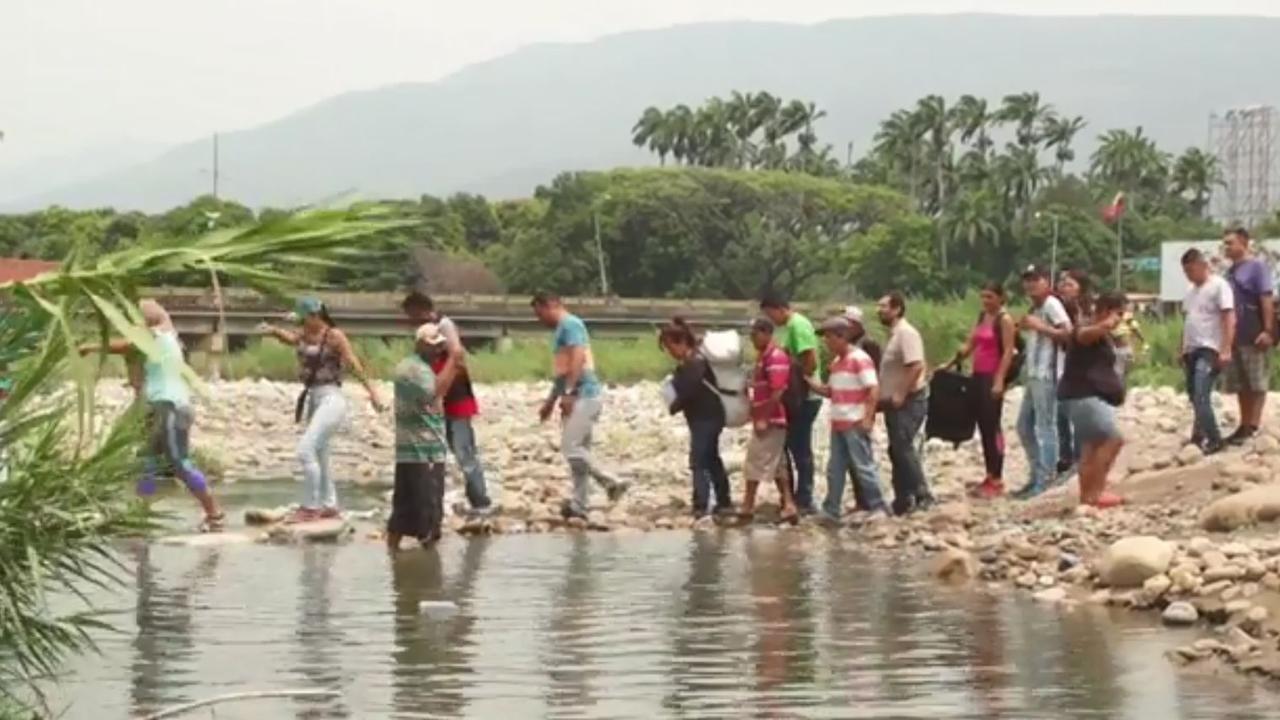

TWO CHOICES THAT COULD BREAK VENEZUELA
The desperate hordes of people at the border are openly defying the Venezuelan government, much like their Opposition Leader Juan Guaido, who has just announced his return after a week visiting Latin American allies.
His return comes at a pivotal moment in the embattled nation’s struggle, as he plans to reinvigorate his fight for control by calling for mass protests across the country against President Nicolas Maduro.
His reappearance in Venezuela poses an immediate challenge to Maduro, who could be left with two choices, and neither outcome bodes well for him.
The Venezuelan leader can either opt to arrest him for defying a travel ban — which would undoubtedly be met strong international condemnation, in particular from US President Donald Trump — or he could allow him to freely enter, undermining his authority.
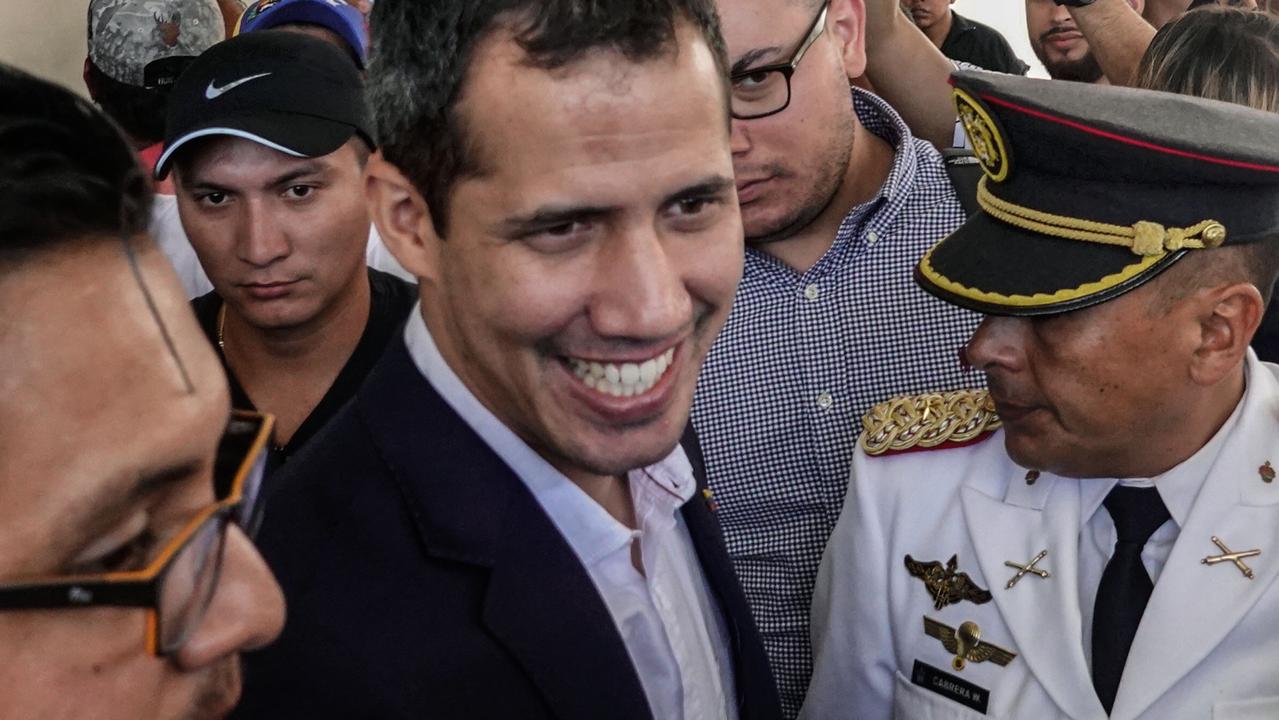
“I’m announcing my return to the country. I am calling on the Venezuelan people to mobilise all over the country tomorrow at 11:00am (2am AEDT),” Guaido on Twitter on Sunday.
Guaido, who has been recognised by more than 50 countries as Venezuela’s rightful interim president, did not say how or when he would return.
Speculation is rife that a flight from the Colombian capital Bogota to Caracas is the most likely route.
However, it’s possible that he plans to slip across the Colombian border in the same way he left Venezuela, claiming on that occasion that he had help from Maduro’s military.
In a second tweet, Guaido said he would provide an account of his tour and announce the opposition’s “next actions” on social networks at 8:30pm (11:30am AEST).
Guaido held talks in Salinas — a coastal resort town west of Guayaquil — on Saturday with President Lenin Moreno, and met with Venezuelan refugees.
On Sunday around noon, he flew out of Salinas without revealing his destination.
‘MUST RETURN TO VENEZUELA’
Defying a Venezuelan government travel ban, Guaido slipped across the border to Colombia on February 23 in an attempt to escort truckloads of international humanitarian aid.
While in Colombia, he met with visiting US Vice President Mike Pence.
The 35-year-old political newcomer then travelled to Brazil, where he met the country’s new right-wing president, Jair Bolsonaro, and on Friday went to Paraguay and Argentina.
In a poke at Maduro during his trip, he said he was invited to visit Chile later this month.
Guaido, who heads the opposition-led National Assembly, stunned the world on January 23 when he proclaimed himself Venezuela’s acting president after the legislature declared Maduro a usurper and illegitimate over his May 2017 re-election, which was widely criticised as fraudulent.
Maduro’s new term in office began on January 10.
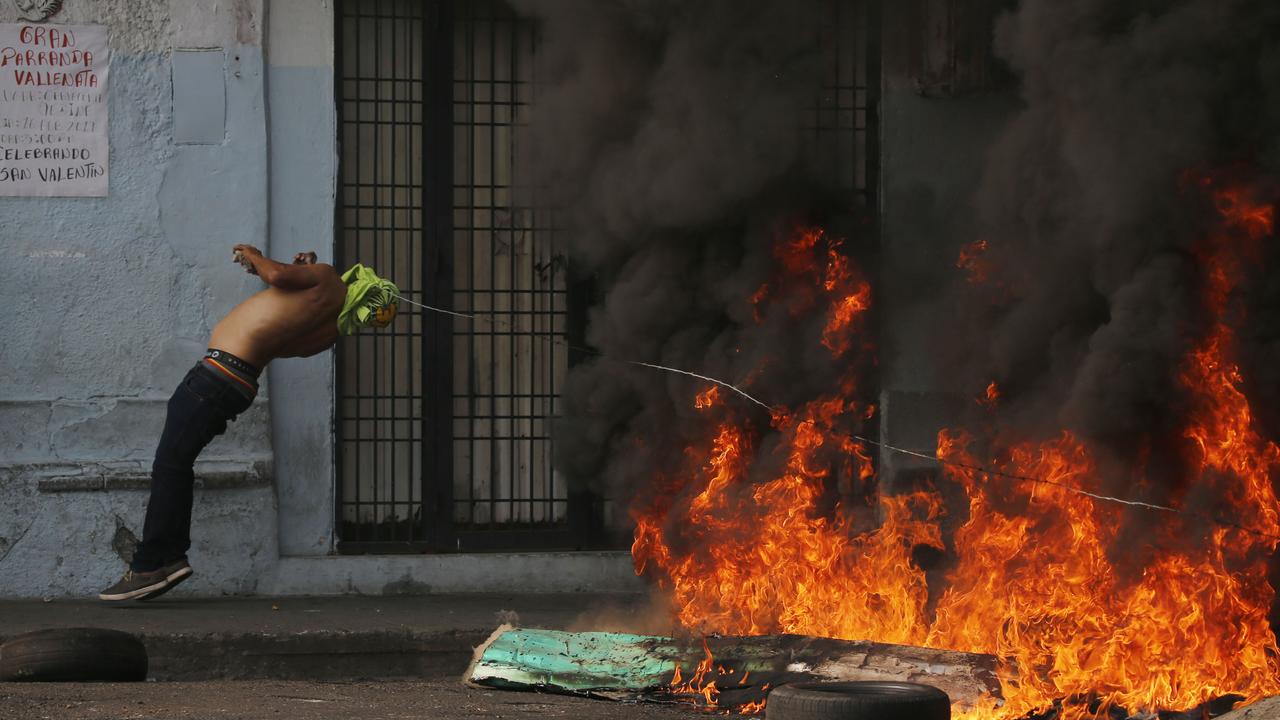
Guaido wants to oust Maduro and set up a transitional government ahead of new elections.
Guaido “must return to Venezuela and continue to press internally, as the international support is enormous,” Eufracio Infante, 64, a Venezuelan lawyer and history teacher, told AFP.
“We are facing a very delicate situation and every minute we are approaching an outcome we hope will not be catastrophic,” he said.
Maduro — who retains the support of Venezuela’s powerful military — enjoys strong support from Russia, which accused Washington of interventionism, and China, which is concerned over the fate of billions of dollars in loans to Maduro’s regime.
The socialist president warned last week that Guaido should “respect the law” and would have to “face justice” if he returns to the country.
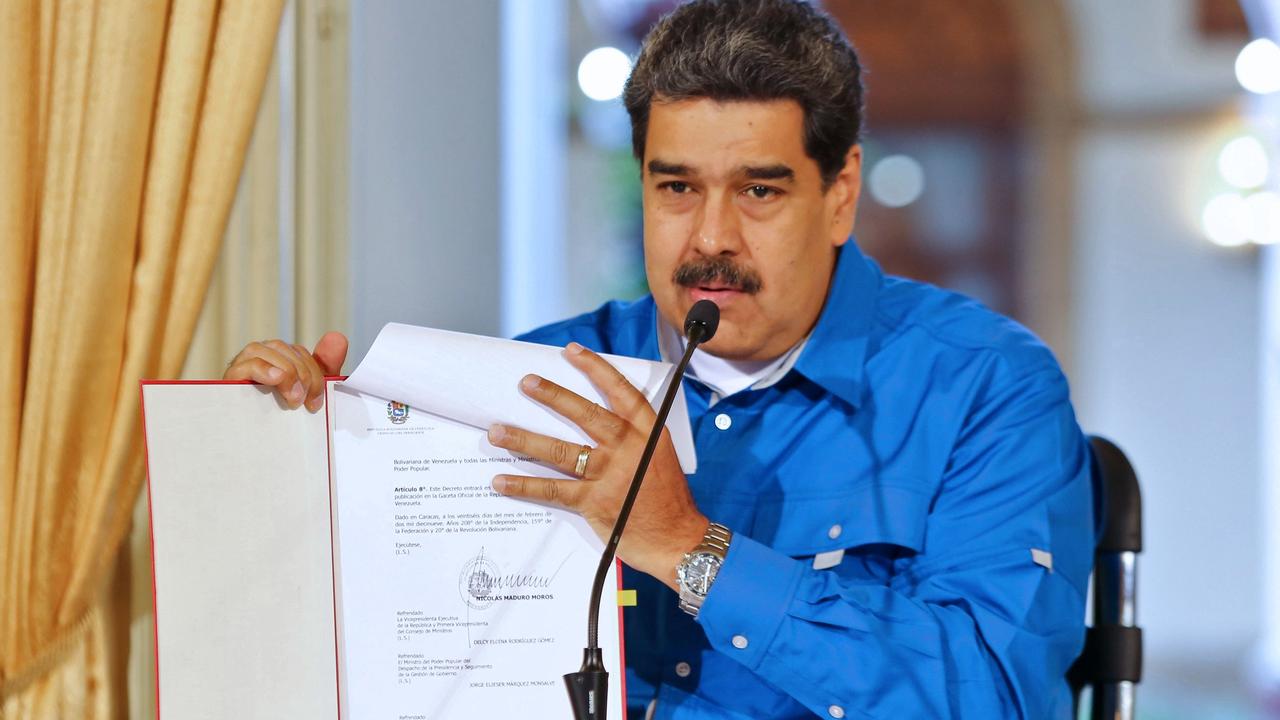
Guaido said last week he intended to return to Venezuela “despite threats” to arrest him. The United States and other allies have expressed concern for his safety.
“The challenge has gone very far,” political analyst Luis Salamanca told AFP. “If he comes in and they stop him, it will generate strong internal reaction as well as internationally. Maduro is at permanent risk.”
European Union Foreign Policy chief Federica Mogherini warned on Saturday that any measure that would put at risk Guaido’s “freedom, safety or personal integrity would represent a major escalation of tensions and meet the firm condemnation of international community.” “Guaido has grown so much politically that they haven’t been able to touch him, in the traditional ways … which is to put him in prison or force him to flee the country, harass him,” said Salamanca.
Separately, Chile’s President Sebastian Pinera sharply criticised UN rights commissioner Michelle Bachelet — Chile’s president 2006-2010 and 2014-2018 — on Sunday for failing to condemn Maduro for human rights violations.
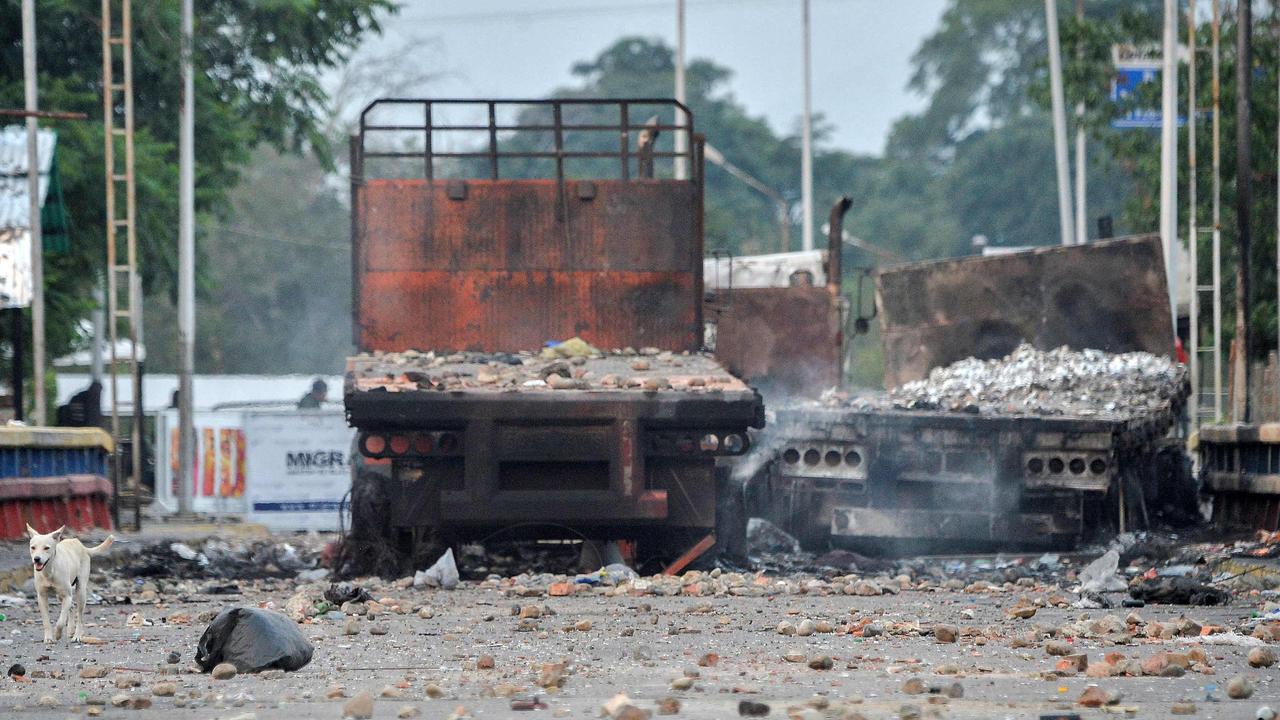
Pinera, a Chilean billionaire elected president for the second time in 2017, is a key supporter of Guaido, and joined the Venezuelan opposition leader in Colombia last weekend in a failed attempt to send international humanitarian aid into Venezuela.
Pinera said in an interview published in the El Mercurio newspaper that Bachelet’s predecessor at the UN, Zeid Ra’ad Al Hussein of Jordan, “was much clearer, more categorical in condemning human rights abuses.”
